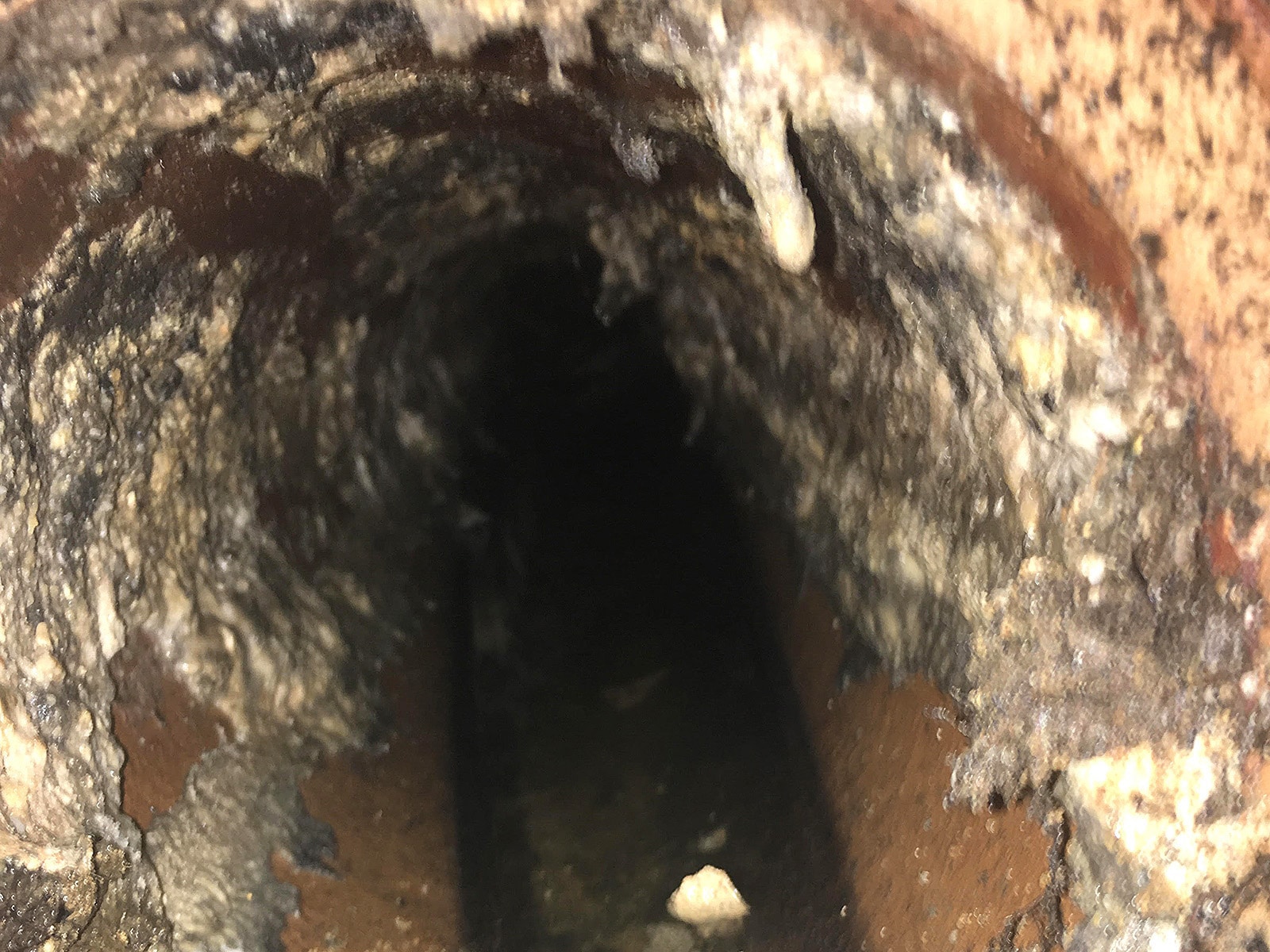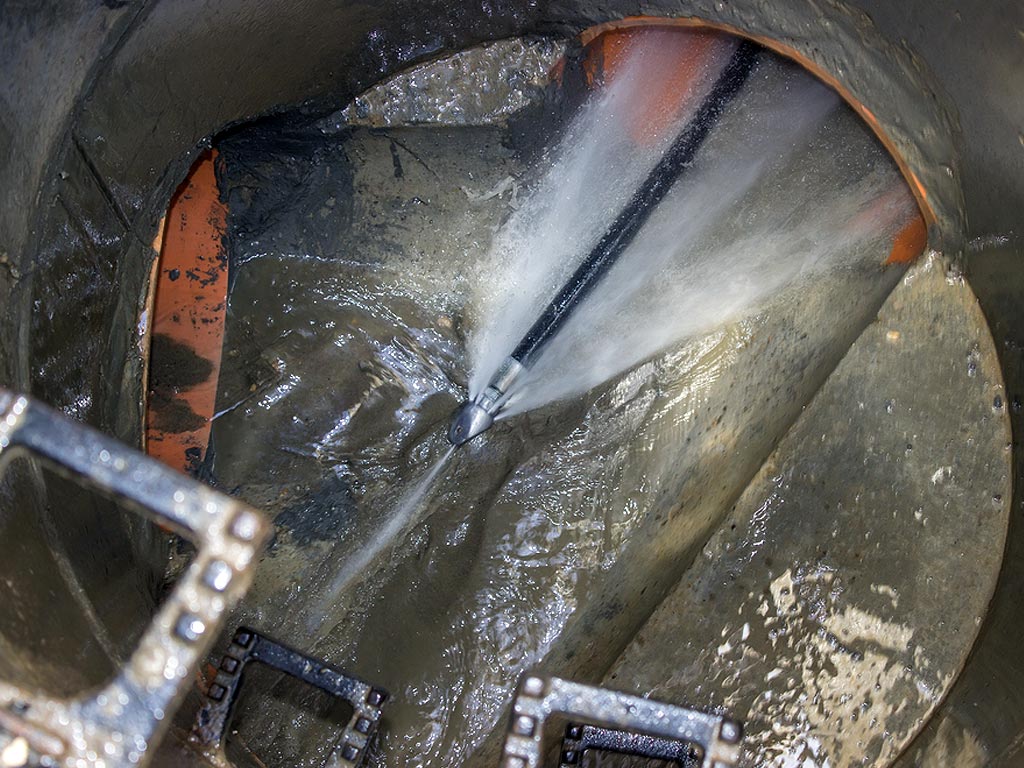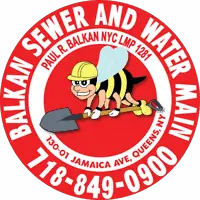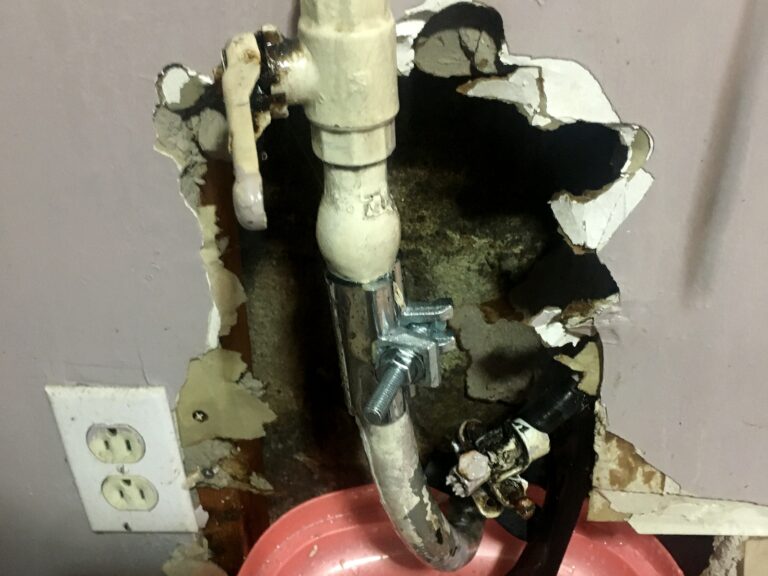Our homes and businesses are connected to public sewage treatment facilities by the city’s sanitary sewer system. When fats, grease, and oils are poured or flushed down sinks, drains, or toilets, they can cool and harden into what we call grease clogs. When poured or flushed, this also makes the grease and oil stick to the walls of our sewer pipes and get your drain system clogged with grease. As you add more grease to the system, these blockages can build up and plug up the lines.
These grease plugs can form in any pipe, in any types of sewer lines, and can cause problems at both ends of the sewer drain system. From inside your home and business, to the sewer system treatment center, and all pipes in between get affected. What follows are some simple tips to prevent grease clogs and blockages from preventing your sewer from functioning. To keep your pipes clean and clear try these easy tips for maintaining your drains.

How Grease Collects in Pipes
Fat and grease are things many of us love to add flavor to our foods. Animal and vegetable fats and oils make it easy to form many of our favorite foods, such as tortillas and other flatbreads. Fry oil cooks crispy delicious food fast. Cooking oil isn’t the only oil out there. Petroleum derivatives have led to the creation of products like gasoline and mechanical lubricants that revolutionized the world.
Humans have a love-hate relationship with grease. Grease has always been a culinary staple. The water repellent and lubricant qualities of grease make it very useful. Before the advent of sophisticated municipal sewer systems, indoor plumbing, and calorie counters, there was a lot more to love about grease.
There are Different Classifications of Grease
An expanding waistline isn’t the only unwanted side effect of fats. Our sewers and household pipelines get clogged over time by this viscous material. Grease comes in two kinds: Nonpolar and Polar. Nonpolar grease molecules are not soluble in water. Substances that are nonpolar will not readily dissolve in polar, water-based solutions. Polar grease is chemically altered so that it is somewhat water-soluble.
Animal fats and vegetable oils used in restaurants and home cooking collect and grease clogs in our drains. They solidify when they cool and form blockages that can be difficult to get rid of. These triglycerides are also found in a range of personal care products, from shampoo to moisturizer. They get washed into pipes on a daily basis through the use of cleaning agents, shampoos, soaps, and lotions.

When triglycerides from animal or vegetable sources are heated and chemically blended with alkaline substances, they can become phospholipids. One end of the molecule will bind to fatty substances and the other to water. This is a useful characteristic in some cases. But this same characteristic poses a big problem when substances are disposed of in your drain system.
Sources of nonpolar greases are all around us. Jet fuel, mineral oils, petroleum products, chemicals that are found in gasoline, and products containing lanolin all are all greasy. They will not dissolve in water because of their hydrocarbon chains. Disposal of these substances is tricky. You can’t just get rid of these products by sending them down the drain, as they will indeed cause grease clogs.
Nonpolar grease that ends up in the municipal water system from industrial petroleum sources is relatively easy to regulate. The animal and vegetable fat-based “polar” greases being dumped into municipal sewer systems from restaurants and homes are much harder to track. Petroleum-based grease found in furniture polishes and other household products can wreak havoc on sewer systems. All of these combined fats can group together in pipes and cause sewer main clogs and residential catastrophes.
Where Do the Fats, Grease, and Oils Come From?
The most common sources of these are:
- Meats and food scraps
- Salad dressings, sauces, and gravies
- Dairy products
- Fat, lard, shortening, cooking oils, butter, and margarine
- Makeup, lotion, and soaps
How Oil and Grease Clogs Affect the Sanitary Sewer System
Once you flush something, the fats, oils, and grease build up in your pipes, creating issues such as:
- Slow drains
- Flooding during heavy rainstorms
- Sewage overflowing and backing up into a home or business
- Flooding in basements
- Exposure to disease-causing organisms
- Sewage overflowing into rivers, lakes, parks, yards, streets, or creeks
- Maintenance and operation costs to clean and repair damaged pipes
What Can Prevent Fat Build-Up and Grease Clogs?
There are several ways homeowners can protect their pipes. Cooking fat and animal fats are the largest contributors to residential drain grease clogs:
- Minimizing the amount of grease that goes down the drain is paramount. Drain cooking fat into an empty soup can or glass jar. This grease will solidify as it cools.
- A second good idea is to use vegetable-based soaps instead of animal fat-based soaps.
- Boil a kettle of water weekly and pour it down your drain to minimize the collection of grease.
- Pour one cup of sodium bicarbonate into your drain and follow it with a cup of vinegar. The acidic vinegar reacts with the alkaline baking soda to create a foaming solution, which clears pipes of minor clogs and debris.
Contact us for more information and helpful tips. Your clogged drain may need professional attention.
Tips to Prevent Fat and Grease Clogs at Home
- Never pour oils or grease down the drain or in toilets, which is sure way get your kitchen sink clogged
- Keep an empty metal can and pour oil and grease into it. Allow it to cool and throw it in the trash
- Wipe before you wash. Pour grease into a container and use a paper towel to wipe greasy pans before washing
- Seal oil by mixing it with an absorbent such as cat litter or coffee grounds before throwing in the trash
- Always use strainers to catch food scraps (food scraps do develope into grease clogs)
- Don’t flush anything down your toilet that you would typically place in a trash bin
- Keep drains clean. Pour half a cup of baking soda down the drain with a half cup of white vinegar. Let it sit for 10-15 minutes and use hot water to rinse it
- Throw a handful of baking soda into the drain, followed by hot water. It cleans well and absorbs foul odors in your pipes.
Tips to Prevent Clogs at Businesses
- Strain or filter oil in fryers
- Control the temperature of deep fryers to prevent oil scorching and prolong its life
- Recycle cooking oils and grease into a large container. You can recycle grease into other products
- Have employees use fat, oil, and grease conservatively in food prep
- Don’t use your garbage disposal to flush it down
- Use rubber scrapers to remove oil, grease, and food waste from cookware by scraping or wiping before using water
- Use paper towels to soak up grease and oil under fryer baskets
- Use paper towels to wipe down working areas
- Avoid cloth towels that could accumulate grease and end up in your drain when washing.
- Decrease the amount of dish soap which emulsifies fat and oil and allows it to pass through an interceptor
- Maintain your grease trap or interceptor by having it cleaned periodically going by manufacturer’s recommendations
As NYC’s #1 Sewer and Water Main service, Balkan always has the right materials and equipment for big and small jobs. We offer:
- High Pressure Water Jetting (particularly effective at clearing grease clogs)
- Sewer Snaking
- HD Sewer Camera Inspections.
- Water Main Repair
- Sewer Repair
- Replacement
- Sewer Backup Help
- Water Emergency Repair
Balkan Sewer And Water Main is the largest family-owned sewer and water main company in New York City. We are licensed, bonded, and insured. For all your sub-surface plumbing needs in Manhattan, Brooklyn, Queens, or the Bronx, contact Balkan Sewer And Water Main today. Get our exclusive Ten Year Unconditional Guarantee. Contact Balkan Sewer And Water Main Service to repair your lines and pipes!






